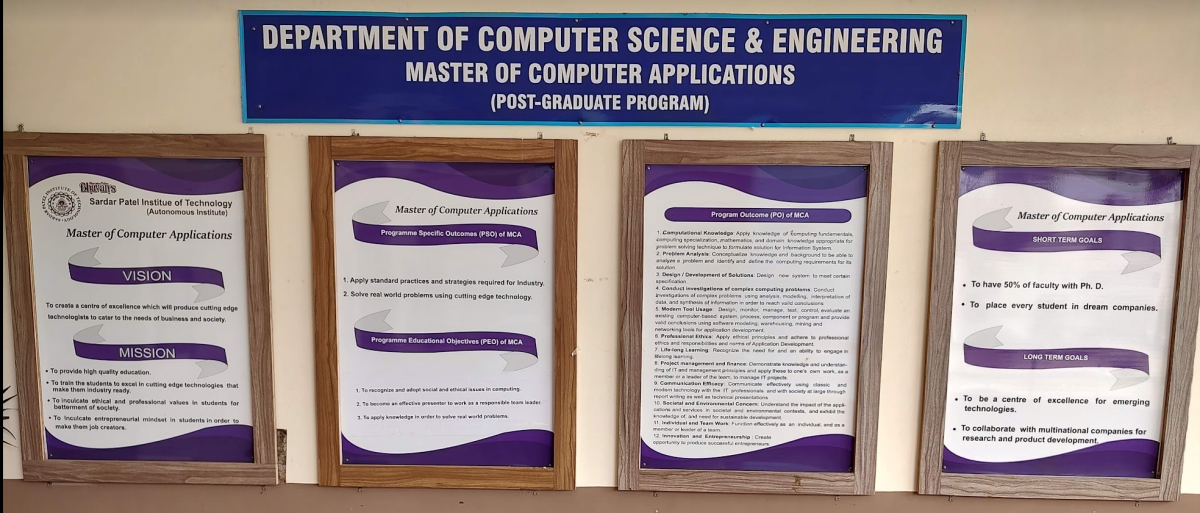
DEPARTMENT VISION
To develop globally competent and ethical professionals in Computer Science and Engineering and enable them to contribute to society.
DEPARTMENT MISSION
M1: To provide rigorous, high-standard, multidisciplinary curriculum and innovative T-L-E-A processes and ensure a stimulating academic environment.
M2: To promote research and innovations through collaborations.
M3: To develop requisite attitudes and skills, besides providing a strong knowledge foundation.
M4: To foster ethics and social responsibility among stakeholders and imbibe a sense of contribution.
PEO OF THE DEPARTMENT
- Design, analyze, develop, test, deploy, and maintain software products, services, and systems.
- Engage in applying the advancement of ICT and stay familiar with the latest technology trends and skills while serving industry, public and private institutions, academia, or any other chosen field.
- Demonstrate excellent computational, communication, teamwork, finance, and project management skills to analyze and solve real-life computational problems, enhance the efficacy and effectiveness of an existing application, or develop a new application.
- Assume leadership in the chosen vertical and demonstrate sensitivity to GSC (Global Social Responsibility).
PROGRAM OUTCOMES
- Foundation Knowledge – Apply knowledge of mathematics, programming logic, and coding fundamentals for problem-solving techniques to formulate solutions for Information Systems.
- Problem Analysis – Conceptualize knowledge and background to be able to analyze a problem and identify and define the computing requirements for its solution.
- Development of Solutions – Design a new system to meet certain specifications.
- Modern Tool Usage – Design, monitor, manage, test, control, and evaluate an existing computer-based system, process, component, or program and provide valid conclusions using software modeling, warehousing, mining, and networking tools for application development.
- Individual and Teamwork – Function effectively as an individual, and as a member or leader of a team.
- Project Management and Finance – Demonstrate knowledge and understanding of IT and management principles and apply these to one’s own work, as a member or a leader of the team, to manage IT projects.
- Ethics – Apply ethical principles and adhere to professional ethics and responsibilities and norms of Application Development.
- Life-long Learning – Recognize the need for and ability to engage in lifelong learning.
MCA PROGRAM SPECIFIC OUTCOMES
Students will be able to
- Apply the principles of ICT (Information and Communication Technology) and technologies such as AI-ML, Data Science, UI/UX, Blockchain, Software Testing, RPA, Security, Cloud, IoT, Mobile Computing, and Open Source for real-life problem-solving.
- Develop and deploy software products and services, demonstrate leadership and teamwork, and communicate effectively.
Establish consistency of PEOs with Mission of the Department
Consistency of PEOs with Mission of the Department
Where : M1,M2,M3 , M4 are Mission Statements with correlation levels 1, 2, or 3
1: Slightly (Low ) 2: Moderate (Medium) 3: Substantial (High)
